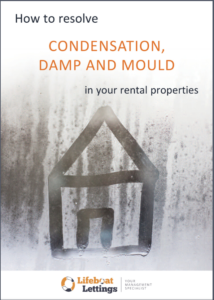
Evidence is showing that increasing numbers of landlords are making the move from long term lets (ASTs) to short term ‘holiday rentals’ and other serviced accommodation.
According to lettings agency Hamptons, the latest figures available show 2,426 holiday-let companies were set up last year, compared with 592 in 2016. Some 25% of these lets were previously long term or BTL type investment properties.
However, existing BTL landlords are warned that making the switch to this completely different industry and business model is not for the faint hearted and should be researched thoroughly.
The National Association of Property Buyers, advises: “There is a good reason why holiday lets rent for far higher amounts than the equivalent buy to let property. Compared to a holiday let, a BTL is relatively cheap for the landlord to manage and is often ‘hands off’ to a certain extent. Once moved in, the tenant is liable for electricity, gas, council tax and cleaning, with the landlord responsible for carrying out repairs and maintenance. As such, managing a BTL is relatively straightforward and many landlords are able to do it themselves. Alternatively, a residential lettings agent can be appointed, for a relatively small proportion of the monthly rent collected as a fee.’
Short term lets and serviced accommodation is a very different business model. Main features compared to BTL:
- Increased turnover of occupants.
- More wear and tear to property.
- Property is required to be furnished.
- Owner is responsible for cleaning, certainly between occupants but possibly also on a daily basis.
- Bedding and consumables need to be replenished.
- Management is very labour intense with agents charging around 20 per cent of rent for the service.
- Potential issues around noise and disruption affecting neighbours.
- Neighbours may not generally be supportive of the use the property is being put to.
- Additional services such as refuse collection need to be considered too – the amount of waste generated by holidaymakers is greater than that of a long-term occupant.
- Not all properties lend themselves to short term lets.
- Generally, more labour intensive for the property owner, particularly if management structures and systems are not in place.
The government estimates put the number of holiday-let properties at 257,000 in England, with 62 per cent in the Southwest, Southeast and London. Thousands of other properties are rented out occasionally by second-home owners or people who – due to sites such as Airbnb – have found it easier to make extra money from their home while they are away.
A series of tax changes and an increase in the number of people holidaying in the UK have also led landlords to choose short term lets over full-time tenancies. Finally, as well as the tax advantages, there is also the draw of higher incomes.
The business can certainly be very lucrative. The average monthly rent in the South-West was £800 in the year to September 2022, according to the Office for National Statistics. Listings on Airbnb, a platform for short-term lets, show properties available for £155 a night on average in Cornwall, which would bring in the same rental income in just over five days. However, as can be seen from the bullets above, the likely running costs of the property for the owner are likely to be significantly higher the typical equivalent property used as a BTL.
There is no doubt that short-term letting is certainly worth considering by existing BTL landlords. But landlords who are considering switching to this very different business model, should ensure they do their homework, to make sure that the harder work and higher costs are justified by higher profits.
For more info about our lettings management
please either call for a chat on 01233 802803 or email your queries to contact@lifeboatlettings.com




